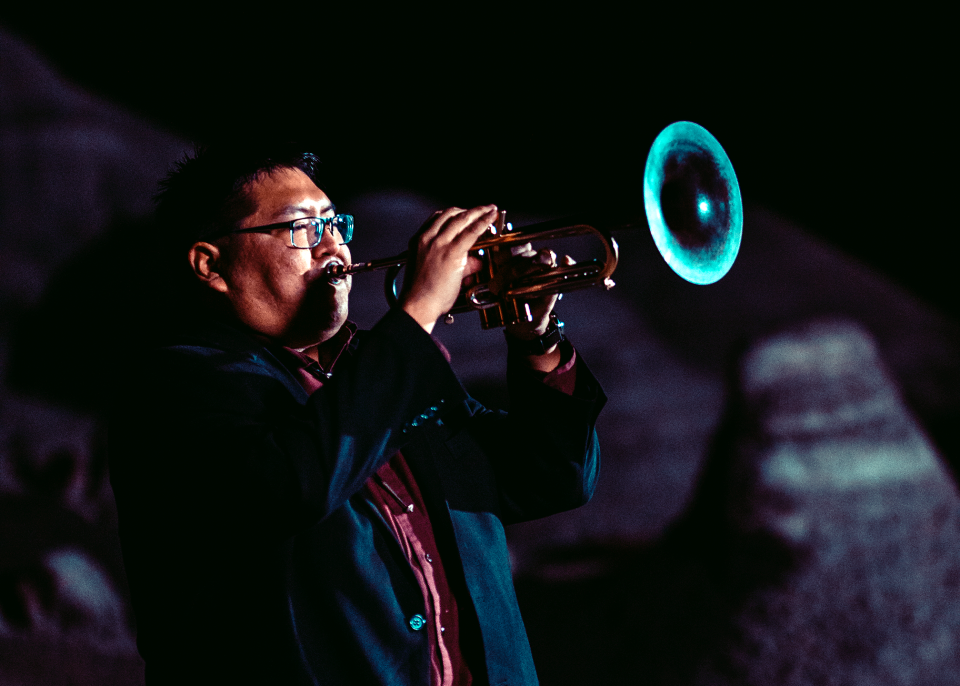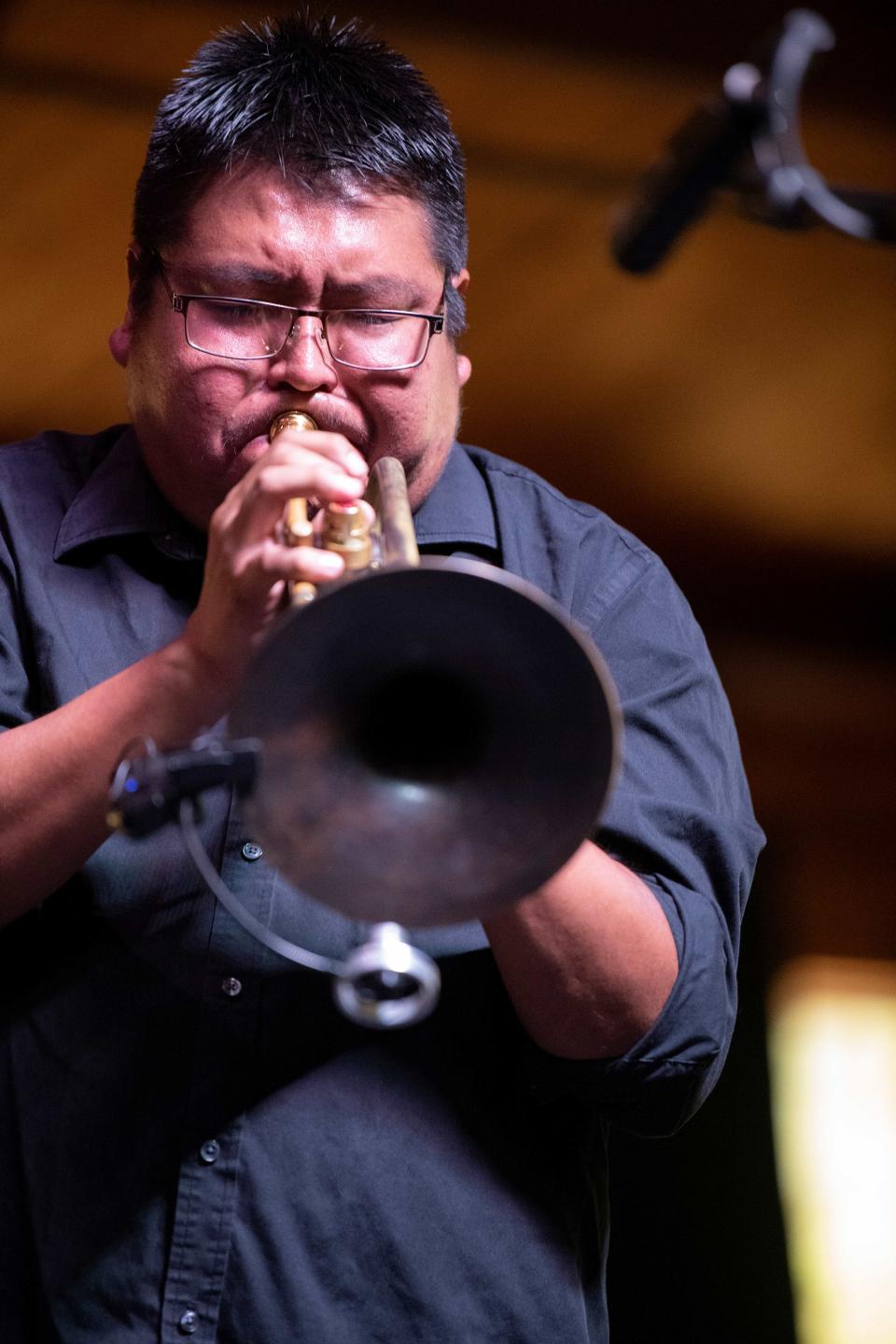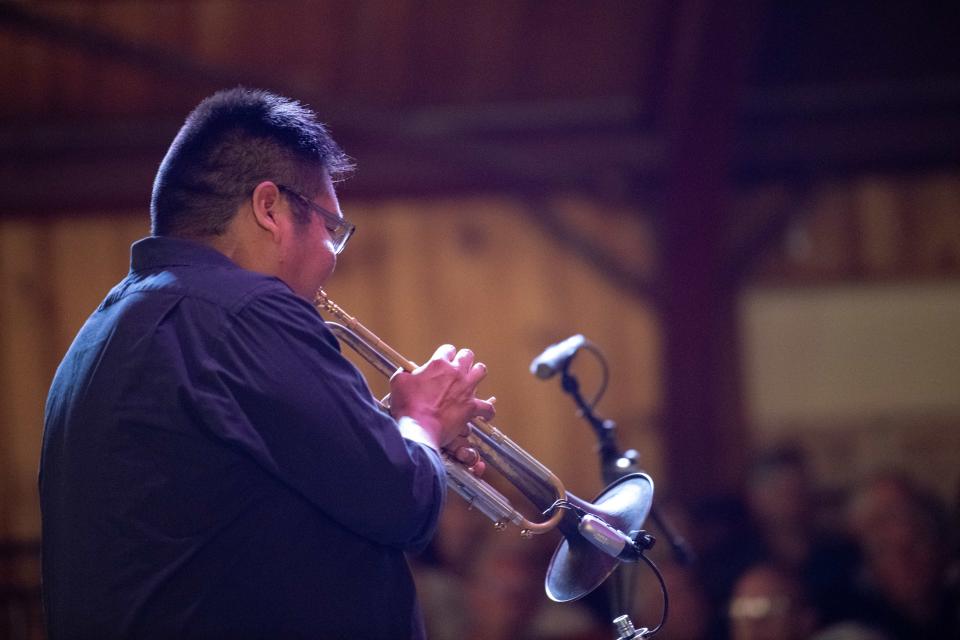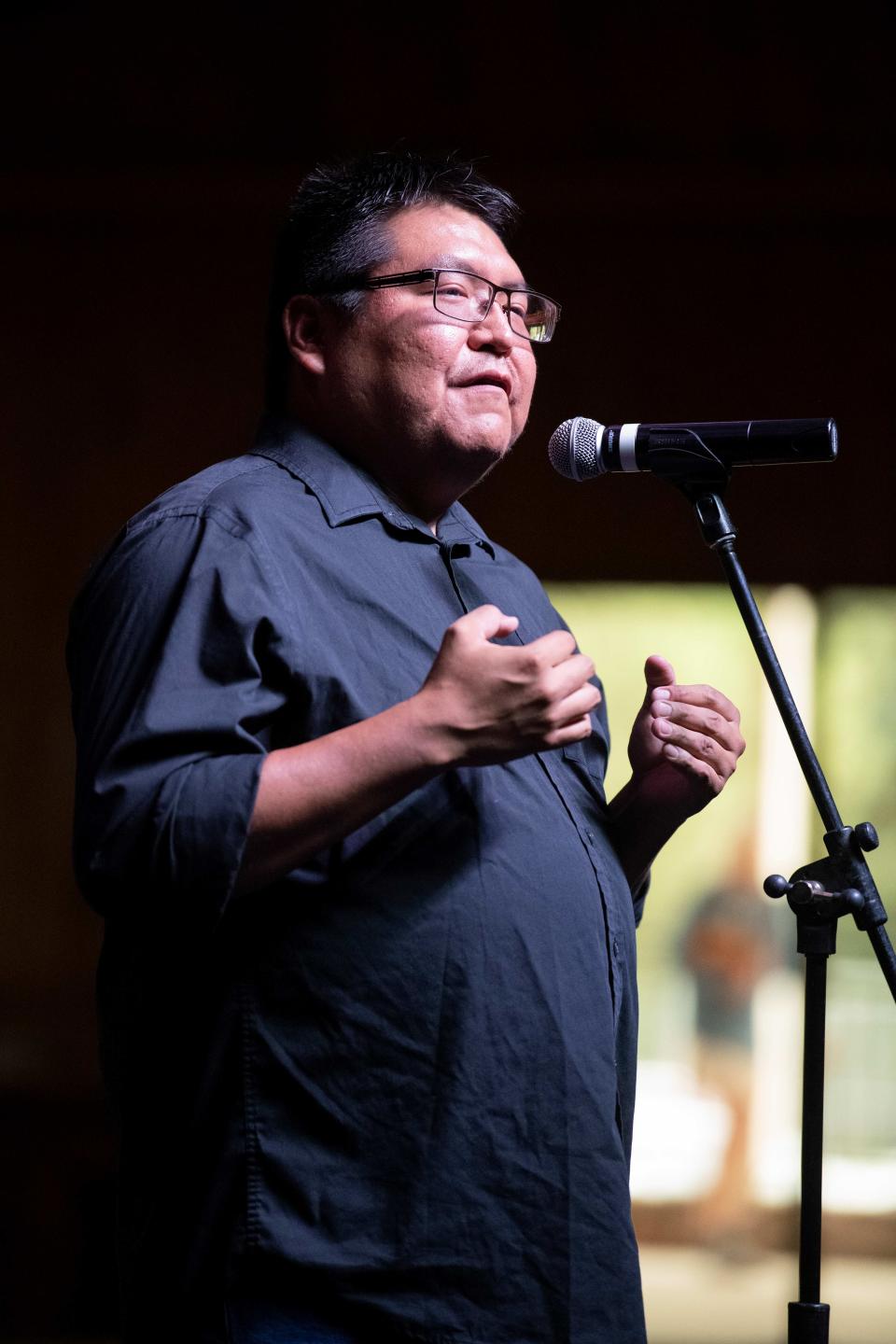The Long Walk: Farmington jazz artist Delbert Anderson launches years-long musical project
One note at a time, Farmington jazz musician Delbert Anderson is using his music to give people a chance to reflect on the solemnity and lingering effects of a dark chapter from Navajo history.
Anderson — the longtime leader of the local jazz combo D’DAT whose work has become internationally known in recent years through a New York Times profile and appearances at the World of Music, Art and Dance Festival in Johannesburg, South Africa — has set his sights on history in his latest project. Resurrecting a tune he crafted in 2006 during his college days at Eastern New Mexico University in Portales, Anderson is asking other musicians to join him in performing the composition to honor and bring attention to his Navajo predecessors who struggled and suffered during what has come to be known as The Long Walk.
The composition consists of only 50 notes, but Anderson is asking those who participate in the project to make a years-long commitment to performing it. The idea is that the 50 notes will be played one a time over a 1,674-day period — a little more than four and a half years — which is the duration of The Long Walk era in Navajo history.
It marks the period of time from which the Navajo began to be forcibly removed from their homeland in the Four Corners to when they were allowed to return. The first groups of Diné people surrendered to U.S. Army authority in 1863 and began a long and arduous trek across New Mexico to an internment camp at Bosque Redondo, where they were forced to remain until they signed a treaty with the government in 1868 that allowed them to come back to the Four Corners.

Anderson has timed the performance of the composition to end on June 1, 2028 – the 160th year since of the signing of the treaty. The timing of the performance of each note is designed to reflect the rhythm and timing of the composition, meaning only 17 days will pass between notes in the case of an eighth note, while nearly three months will go by for an eighth note tied to a half note.
The idea, Anderson said, is that each individual note will resonate — at least spiritually — for the duration of its assigned time, until the next note is performed. Cumulatively, it will take 1,674 days for those participating in the project to play the entire tune, which appropriately bears the title “The Long Walk (1,674 Days).”
After performing each note, the musicians are encouraged to read about and participate in a corresponding action item, a list of tasks that includes visiting Long Walk websites, sharing facts about the event with others and highlighting the work of Diné artists through social media.

“It was there to create awareness and let people know about The Long Walk,” Anderson said, describing the idea behind the project. “You’re supposed to play the note and look at the activity for that day. … It allows a person to focus on and study the subject for a long period of time.”
Through his website, delbertanderson.com, those who wish to participate officially in the project can purchase and download a full package of materials that includes the music and a schedule for the performance of each note. There is also a free, scaled-down downloadable package for those who want to take part unofficially.
“I kind of see it as retelling the truth (about The Long Walk), but exposing some truths that are not well known,” Anderson said.
Despite his Diné heritage, Anderson acknowledged the particulars of The Long Walk were not well known to him before he began researching the event in college, which is what led him to craft the composition. In its original form, the tune included lyrics and was a full-length piece, but Anderson has chosen to distill this version to only a 50-note instrumental piece.
Many early portrayals of The Long Walk painted it in a more positive light, Anderson said, explaining that the often-cruel conditions under which the forced march was conducted were glossed over. Anderson said he has read first-hand accounts by some of the U.S. Army officers involved in The Long Walk that make it clear how horrible conditions were on the trek and in the camp at Bosque Redondo. He said the official story that emerged in the aftermath is that the Diné were interned there as part of an effort to help them assimilate to white culture, but, by some accounts, 20 to 30 people a week sometimes died of starvation.

“I hope there’s some type of healing that occurs from this,” he said.
Anderson said 80 people had downloaded the full package from his website as of Dec. 11, and he estimated that close to that many folks had downloaded the free package and were taking part in the project on their own. The first note was performed on Nov. 1 — which Anderson timed to coincide with the beginning of Native American Heritage Month — while the second note will be performed at 7:30 p.m. Wednesday, Dec. 13. The Heart Gallery at 307 W. Main St. will serve as the host site for a small gathering of participating musicians, with Anderson leading the group.

He’ll open the event by passing out information sheets and leading a discussion on The Long Walk, then, at 7:30 sharp, everyone will pick up their instrument and play the second note, which Anderson said is timed to last four measures. The event will be streamed live on social media, with participants encouraged to use the hashtag #thelongwalk or #hwéeldi.
“I think it’s one of those projects that’s going to grow and get bigger and bigger,” Anderson said.
The list of participants already includes several middle school and high school musicians, Anderson said, which excites him because he said they will have the chance to grow and mature as people and artists over the four and a half years that it takes to complete the project. In addition to having a major educational component, the project also will force participants to be disciplined about planning if they intend to join in on all 50 notes at the right time, he said.
“I think it’s already a success from the musicians just playing the first note,” Anderson said.
Mike Easterling can be reached at 505-564-4610 or measterling@daily-times.com. Support local journalism with a digital subscription: http://bit.ly/2I6TU0e.
This article originally appeared on Farmington Daily Times: Delbert Anderson plans end of "Long Walk" performances for June 2028

